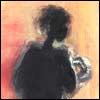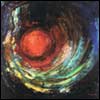Like most Americans, I found myself glued to the coverage of Hurricane Katrina all week. From when she hit land and through the winds, rain, floods, broken levies, hunger, strife, disease, and the bodies on the sidewalks. On a personal note, I and thousands of other Chabad rabbis worried about Rabbi Nemes who had stayed to host some stranded visitors, and by last account was on the second floor of his home, with the first floor flowing with toxic water, waiting to be rescued. (In the end, he and his guests were rescued and are all fine.)
What a fulcrum of pain and suffering that beautiful city of New Orleans (and the surrounding areas) has become. The pictures that keep coming to mind: the father who was holding his wife's hand as she said, "take care of the kids, I can't hold on any longer" and let go to flow away into the raging waters. The 3-year-old child walking aimlessly as his parents are nowhere to be found. The throngs of people around the Superdome and the Convention Center crying as they await water, food, supplies and anything that can ease the pain and suffering.
Bodies floating in the newfound rivers, rescue workers dodging corpses and excrement to save the stranded holding signs on their rooftops begging to be saved before they dehydrate. Scenes so vivid and powerful, you'd expect to see such pain and squalor in a distant third world country. Not here in the United States of America.
The question that keeps coming back is a simple yet extremely powerful one. Why? Why does G‑d create hurricanes? Why are men and women crying over their parents who are dying in the heat or their children who have not been bathed or fed in a week? Why?
Why all the destruction? A city hundreds of years old with a rich history, a city that has in many ways represented America with its charm and beauty, reduced to rubble; why? Why does G‑d, whose nature is "good and to do good," so painfully upset the lives of hundreds of thousands? Why does G‑d, who commands us in His Torah to be considerate of the possessions of another person, displace people and ruin their property and their hopes of a normal life for the foreseeable future?
Why, G‑d, why?
There is an axiom quoted by the Chassidic masters, I'lu yada'ativ ha'yisiv--"If I knew Him, I would be Him." If G‑d's ways were so easily understood that I could reconcile them in my mind, I would be Him. Simply said, we cannot understand the ways of G‑d. Our finite minds cannot encompass the totality of life's intricacies and complications as G‑d sees them. It is simply beyond our capacity to fathom how each event in our lives is a step toward the fulfillment of the Divine plan.
A somewhat cynical approach to addressing pain and suffering, one might think.
I remember a line from the Torah that my father would use to comfort and calm me in various times of crisis. I have held onto this message and have conveyed it countless times to assuage the pain that individuals were experiencing.
In the book of Exodus there is a fascinating exchange between G‑d and Moses:
And [Moses] said: "Show me, now, Your glory!"
[G‑d] said: "I will let all My goodness pass before you; I will proclaim the name of the L-rd before you, and I will favor when I wish to favor, and I will have compassion when I wish to have compassion."
And He said, "You will not be able to see My face, for man shall not see Me and live."
And G‑d said: "Behold, there is a place with Me; you shall stand on the rock.
"And it shall be that when My glory passes by, I will place you into the cleft of the rock, and I will cover you with My hand until I have passed by.
"Then I will remove My hand, and you will see My back; but My face shall not be seen." (Exodus 32:18-23)
This is a strange conversation, both on the surface and when delving into the commentary. What is this need that Moses had to see G‑d's "glory"? What is this "rock" (tzur in the Hebrew) that G‑d placed Moses into as He passed by him, showing him merely His back, apparently appeasing Moses's desire to see G‑d?
My father explained it to me this way. The term "rock" in Hebrew, tzur, can also be translated as "narrows" or "constraints," as in the root of the Hebrew tzarah, "trouble" (from which the Yiddish term tzoros derives). When Moses requested a "visual" on G‑d, he was asking a far deeper question. Show me Your "glory," he asked of G‑d; show me how a good G‑d does unexplainable things. How can it be that You, the Master of the universe, King of all Kings, can cause pain and difficulty in the lives of Your creations? I am the leader of these people of Yours, Moses was saying, and I need to explain to them in their time of distress, how G‑d can do such things.
To which G‑d replies, "You cannot see Me, for no man can see Me and live." I cannot explain it to you, for you are human. You need to be G‑d to understand My ways. However, G‑d says, I will give you something to hold on to. I will put you into "the rock" and I will pass by you and you will see My back.
In other words, G‑d told Moses: No, I cannot explain to you why people suffer, you are too human to understand. However, everyone has the ability to experience My "back," the retrospective appreciation for what has transpired.
Ask those who have risen to the occasion and survived tragedy and despair and they will tell you that while it was very difficult it was also a growing experience. They are better people for it. They have become stronger as a result of it, other problems in their lives are now put into perspective of the greater picture and they now can handle so much more. In retrospect they can accept what happened.
You will see Me in retrospect, G‑d said to Moses. You will see Me from the back. After I have passed by you, you will appreciate the glimmer of goodness in what I did. You may still question my ways; since you are not Me, you cannot fully understand. However, you find comfort yourself in the knowledge that I, G‑d, the loving Master and Parent, know what I am doing. Retrospectively, you will appreciate what transpired, enough to feel that there was some gain, growth and value in the devastation.
May we know only revealed good, and not have the need for philosophical clarifications.
To help in the relief effort please log on to www.chabadneworleans.com





Join the Discussion